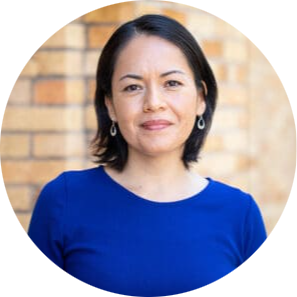Greetings from the Breast Imaging section at ARA. We are having a busy year, with lots of Austin-area women catching up on mammograms missed due to COVID-19 restrictions. We urge any of you who have been putting off your mammogram to schedule now. Also be sure to pass it on and encourage the women in your life to get their screening.
We do have some information about the COVID-19 vaccine that is of particular interest to those who may be going through cancer treatment or have had cancer.
One of the side effects that we have encountered after you get a COVID-19 vaccine is that the lymph nodes in your armpit can swell on the side where you get the injection. This is part of a normal vaccine reaction and a good sign the vaccine is doing its job. But because swollen lymph nodes can also be a sign of breast cancer, it’s important for you to schedule your mammogram about four weeks after your COVID-19 vaccine, which can help reduce false positive test results. This may also be true of any upcoming booster shots, but we do not have sufficient data on that yet.
Also, for women in treatment for breast cancer or who have had breast cancer previously, we suggest that you get your vaccine in the arm opposite to the side of the body where your cancer was diagnosed. This can avoid swollen lymph nodes on that side and help reduce the need for further imaging.
As always, we feel it is important to state the basic facts of breast cancer and the benefits of yearly mammograms starting at age 40. Keep in mind that one out of eight women will get breast cancer in their lifetime. While this is a daunting number, 98 percent of women survive breast cancer when it is caught early by a mammogram.
Getting mammograms once a year starting at age 40 is so vital. Research has shown that women who get mammograms every year are more likely to have smaller, more treatable cancers than women who get mammograms every other year. In fact, 76% of the cancers detected in women who have a mammogram every year are caught at an early stage versus 56% of cancers in women who have mammograms every other year.
Another important thing to keep in mind and to tell your daughters and younger friends is that every woman in their 20s should have a breast health assessment with their health care provider. This should include a health history and a family history. If there is a strong family history or a possibility of genetic predisposition, younger women may need genetic testing and screening mammograms starting at age 30 or earlier.
ARA Women’s Imaging is proud to serve Central Texas. While we are never glad to deliver a breast cancer diagnosis, we know that early detection can make all the difference and we encourage all women of all ages to take care of their breast health.
Schedule online at ausrad.com/scheduling now.

Arthy Saravanan, MD Breast Imager at ARA Diagnostic Imaging
Dr. Arthy Saravanan has been a breast imager at ARA Diagnostic Imaging since 2017. She received her MD from Indiana University School of Medicine, then did residencies at Providence Hospital in Southfield, Michigan, and Aultman/Mercy Hospital/Northeast Ohio Medical University. Her fellowship year in breast imaging was spent at the University Health Network at the University of Toronto. Dr. Saravanan and her husband live in Austin with their two daughters. She follows interests in track, badminton, and Indian dance choreography and was named Mrs. India International in 2014 for her many and varied accomplishments.
If you or someone you know is facing breast cancer and could use our support, please visit our website or call our helpline at 512-524-2560.
Consider making a donation to BCRC and give the gift that makes a real difference for the women in Central Texas facing breast cancer right NOW. Visit bcrc.org to learn more about how we can help, or click here if you wish to give back today.












